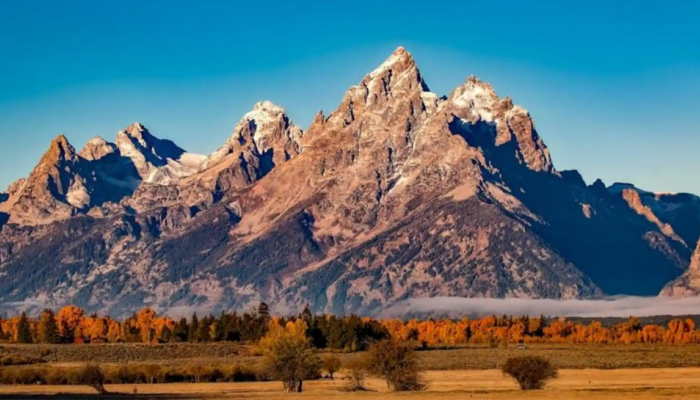World's 4 Most Remote National Parks for Unlimited Adventure
Explore the world's most remote national parks, offering unparalleled adventures in some of the most untouched wildernesses on Earth. Discover Gates of the Arctic, Rapa Nui, Auyuittuq, and Kluane National Parks.
Trending Photos
)
For those seeking an adventure far from the trappings of modern civilization, there are few places more enticing than the world's most remote national parks. These wild, untamed landscapes offer the ultimate escape into nature, where isolation and raw beauty reign supreme. Below, we explore four of the most remote national parks on Earth, each offering a unique experience for the intrepid traveller.
1. Gates of the Arctic National Park, Alaska, USA
Gates of the Arctic National Park is the epitome of wilderness. Located entirely above the Arctic Circle in northern Alaska, it is the least visited national park in the United States—a fact that speaks volumes about its inaccessibility and ruggedness. With no roads or trails leading to the park, visitors must either charter a bush plane or embark on a gruelling hike from the nearest road, which is miles away.
Upon arrival, adventurers are rewarded with an untouched expanse of rugged mountain ranges, pristine rivers, and the chance to observe caribou, grizzly bears, and wolves in their natural habitat. The park's extreme isolation ensures that those who venture here experience a true wilderness, one of the last unspoiled places on Earth. It’s a destination that promises solitude and the kind of adventure that few places on the planet can offer.
2. Rapa Nui National Park, Easter Island, Chile
Rapa Nui National Park, located over 2,000 miles off the coast of Chile in the middle of the Pacific Ocean, is one of the most isolated places on Earth. This remoteness adds to the allure of Easter Island, a place known for its enigmatic moai statues carved by the Rapa Nui people centuries ago. The park covers nearly 40% of the island, protecting both its cultural heritage and its unique ecosystem.
Reaching Rapa Nui requires a long flight from mainland Chile, and once there, visitors can explore a landscape filled with volcanic craters, ancient petroglyphs, and the mysterious moai. The island’s isolation enhances the mystique of this UNESCO World Heritage site, making it a destination where history, culture, and adventure converge.
3. Auyuittuq National Park, Nunavut, Canada
Auyuittuq National Park, which translates to "the land that never melts," is a fitting name for this remote Arctic wilderness located on Baffin Island in Canada’s Nunavut territory. The park is characterized by dramatic fjords, towering granite peaks, and expansive glaciers, making it a haven for experienced adventurers.
Access to Auyuittuq is limited, depending on the season, to either boat or snowmobile, underscoring its remoteness. Once inside, visitors can hike the challenging Akshayuk Pass or marvel at Mount Thor, renowned for having the world’s highest vertical drop. The park's extreme conditions and isolation make it a destination for those seeking true solitude and an unparalleled connection with nature in one of the planet’s most challenging environments.
4. Kluane National Park, Yukon, Canada
Kluane National Park is home to Canada’s highest peak, Mount Logan, and the largest non-polar icefield in the world. This vast wilderness is accessible only via a few rough roads, preserving its wild and untamed character. The park's landscape, composed of towering mountains, glaciers, and wild rivers, offers an untouched haven for adventurers.
Activities like hiking, mountaineering, and rafting are popular here, but the park's remoteness ensures that visitors can still find solitude, even during the peak season. For those willing to venture into its rugged terrain, Kluane offers an adventure of epic proportions, in a place where nature remains as wild as ever.
Live Tv







)
)
)
)
)
)
)
)
)
)
